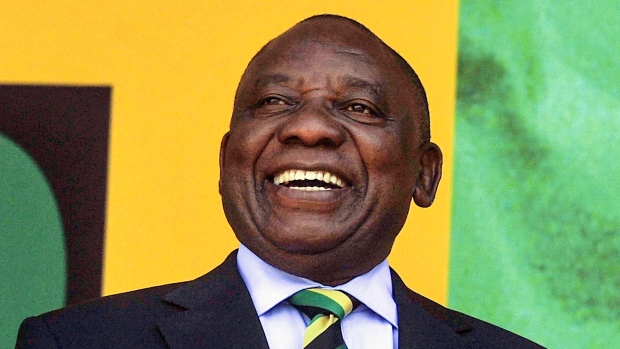WORLDVIEW: Replacing a corrupt legacy

By Jonathan Power
It’s been an odd couple of months for southern Africa. No one predicted last year that in almost the same breath the long-serving dictator of Zimbabwe, Robert Mugabe, and the super-corrupt president of South Africa, Jacob Zuma, would be soon overthrown- and non-violently to boot.

In Zimbabwe the army did trigger Mugabe’s demise, but it was a sort of passive coup, a non-violent withdrawal of support. In South Africa Zuma was compelled to stand down as leader of the African National Congress because of a majority vote against him in an assembly of the ANC, the party of black protest against former minority white-led rule. Again, all done non-violently.
What is more, in South Africa, although violence had played some part in black liberation, the negotiations that took place in the closing years of the apartheid regime were accomplished without violence.
There were peaceful negotiations between the black and white leadership that led to a new constitution that allowed free elections and thus the accession to the presidency of the ANC leader, Nelson Mandela.
Different Worlds
Compare this with the violence and intimidation that has plagued the recent Kenyan elections, the imposition of dictatorial rule in Ethiopia and the ongoing mayhem in the Congo and Somalia. It is as if there are two different worlds in sub-Saharan Africa.
Of course, there are other countries in black Africa that are increasingly democratic and have regular non-violent elections- Tanzania, Botswana, Senegal, Angola, Cote d’Ivoire, Mozambique, Liberia Nigeria and Zambia among others.
No sub-Saharan African countries, apart from Namibia, Zimbabwe and Kenya, achieved their independence by use of the sword. It was done by negotiations with the metropolitan power in Europe. (Ethiopia and Liberia were not colonized.) Apart from Kenya and Cote d’Ivoire, there were not large numbers of white settlers to complicate matters, as in Zimbabwe and South Africa.
Both Zimbabwe and South Africa have frittered away a good part of their inheritance. In Zimbabwe, the Marxist president created massive inflation, impoverishment of the masses and a silver platter for his associates.
In South Africa, it has been more complex. White South Africa, dominated by the Afrikaners, (Dutch)settlers, was exceedingly corrupt, as well as rich. The new black elite stepped into their shoes, despite the leadership of Mandela, a leader of probity and integrity.
Mandela, and his successor, Thabo Mbeki, seemed unable to stem its tide. Zuma made it far worse. He and his associates creamed off hundreds of millions of dollars. It is this corruption that finally undid Zuma. The straw that broke the camel’s back was the $650,000 he paid out of state funds for a swimming pool and other delights on his magnificent homestead.
Payback
A majority of the ANC, albeit a slim one, could not abide this. Indeed such was their agitation that he was compelled to pay it back.
Zuma might well face prosecution for alleged bribes he was supposed to have taken some years ago, paid out for a defense contract. During his presidency, he managed to undermine the independence of the police, the public prosecutor and the tax authorities. Now they can move against him.
Cyril Ramaphosa has taken over. He started life in politics as a student. Then he helped establish a powerful union of miners. He was Mandela’s favorite for successor but lost out to Mbeki. He left politics and went into business and became rich without apparently becoming corrupt. Next, he became Zuma’s deputy.
His intelligence and negotiating skills are legendary. It has been said that in a negotiation he removes his opponent’s trousers but the man only finds this out once he leaves the room. Meanwhile, Ramaphosa has walked away with the agreement he wanted. He is charismatic and exceedingly popular among the black masses.
Yet while deputy president he kept his mouth shut about his boss’s excesses.
He now has to restore the authority of the police and prosecutors. (Senior judges, mainly black, have done a sterling job of keeping the courts independent. The printed press has kept itself almost free.)
He has to reverse plans to take away the independence of the central bank. He has to drive down the unemployment rate of 25% by attracting foreign investment and encouraging small-scale, labor-intensive, industry in the African townships. He must build on the good work of his predecessors in bringing sewerage, clean water, better housing and health services into many poor neighborhoods. He needs to pursue the forgotten promise of land reform while fairly compensating white owners. Quality education has to be ramped up. Defense spending, much of it unnecessary, must be severely cut back.
South Africa, as was thought in Mandela’s time, does have a great future. Now, after years of bad leadership, it has to recover its underlying strength and show its worth.





